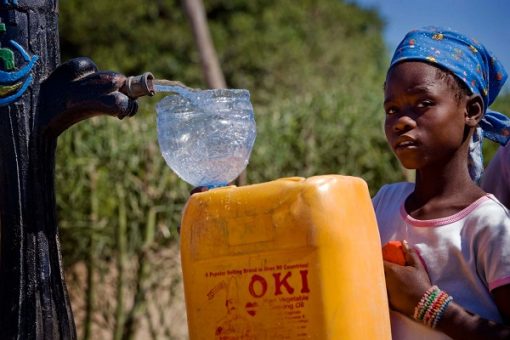The Federal Government has called for immediate and concerted efforts to tackle worsening water crisis, highlighting the urgent need to protect drinking water sources and improve access to clean water and sanitation.
At a workshop in Abuja titled “Access to clean water and improved sanitation: The Place of regulation and management,” the Acting Executive Director of the Nigeria Integrated Water Resources Management Commission (NIWRMC), Mrs. Sakinatu Suleiman Abbo Jimeta, warned that over 57% of Nigerians are forced to rely on untreated water sources, exposing them to serious health risks.
She added that climate change was exacerbating the situation, further straining the country’s already fragile water supply.
Jimeta emphasised that safeguarding Nigeria’s drinking water is crucial, not only for public health but also for economic growth and long-term sustainability.
According to her: “The protection of our water resources is central to supporting economic development, maintaining environmental integrity, and ensuring long-term water security.”
She also highlighted the importance of regulation and management in the water sector, noting that without effective oversight, it would be difficult to guarantee access to clean water and improved sanitation for all Nigerians.
According to Jimeta, this issue was a fundamental human right that requires urgent attention.
The workshop gathered stakeholders from across the water sector, including government officials, water service providers, environmental experts, and international partners, to discuss best practices for water resource management.
Participants were briefed on the need for a collective approach to safeguarding the country’s water sources and ensuring equitable access to safe water and sanitation.
Mr. Sunday Idowu, Director of Corporate Support Services at NIWRMC, also raised concerns about the dire health consequences of inadequate access to clean water and sanitation.
He pointed out that millions of Nigerians, particularly in rural areas, are at risk of waterborne diseases due to their reliance on unsafe water sources.
“Our focus as a Commission is to regulate, protect, and manage Nigeria’s water resources for sustainable development. The health risks associated with poor water quality and inadequate sanitation are immense, and addressing them is a top priority,” Idowu stated.
He added that the Commission is working on several initiatives to enhance water safety and promote sustainable water management practices.
During the workshop, experts including Mr. Michael Ale and Engineer Kazeem Kolawole Raji presented papers on the role of effective regulation in improving water access and sanitation.
They highlighted the importance of community involvement in water management, sustainable water usage practices, and the need for stronger collaboration between government and private sector players.

